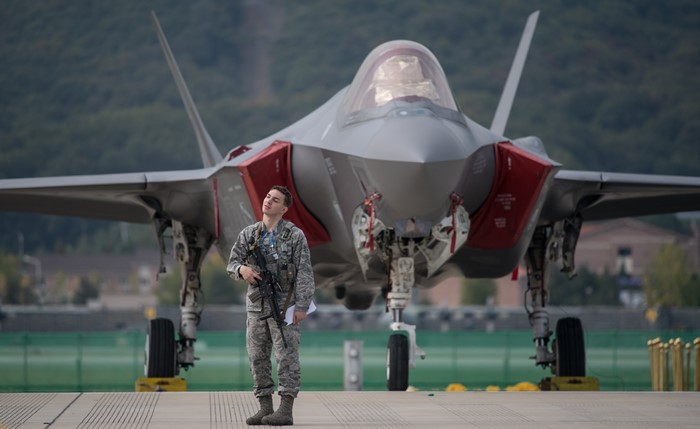The United States is seriously considering suspending training for Turkish pilots on advanced F-35 fighter jets as Ankara moves ahead with plans to purchase a Russian missile defense system despite objections from Washington, Reuters reported on Tuesday, citing sources.
The two NATO allies have argued for months over Turkey’s order for the Russian S-400 defenses, which Washington says are incompatible with the Western alliance’s defense network and would pose a threat to the American F-35 stealth fighters that Turkey also plans to buy.
The two sources who are familiar with Turkey’s role in the F-35 program and who spoke on condition of anonymity said a final decision had not yet been made.
The deliberation follows signs that Turkey is moving ahead with the S-400 purchase. Defense Minister Hulusi Akar said on May 22 that Turkish military personnel were receiving training in Russia to use the S-400, and said Russian personnel may come to Turkey.
Turkish pilots have also been training at Luke Air Force Base in Arizona. It was unclear whether a decision to suspend their training would mean they would have to leave the country or would be allowed to remain at the base until a final decision is made about Turkey’s future in the F-35 program.
The United States has said plainly that Turkey cannot have the S-400s and be part of the F-35 program. The F-35 is made by Lockheed Martin Corp.
Strains in ties between Washington and Ankara already extend beyond the F-35s to include conflicting strategy in Syria, Iran sanctions and the detention of US consular staff in Turkey.
The Pentagon and State Department declined to comment on any deliberations about the pilots. But Pentagon spokesman Lt. Col. Mike Andrews noted discussions are taking place with Ankara on potentially buying the Patriot missile defense system.
Andrews said the Patriot system, made by Raytheon Co., “remains a robust, NATO-interoperable alternative to the S-400 for [Turkey’s] national defense requirements.”
Objecting to Ankara’s planned Russian defense purchase, the United States in late March halted delivery of equipment related to the F-35 to Turkey, which is both a buyer and a production partner in the program. The move was the first concrete step of what could eventually be the full removal of Turkey from the F-35 program.
The United States has warned that if Turkey takes delivery of the Russian system, it will also trigger US sanctions under CATSAA, a law calling for sanctions against countries procuring military equipment from Russia.

